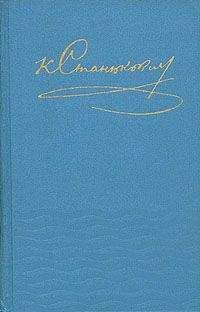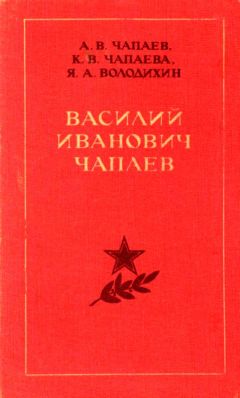Иосиф Бродский - Из книги эссе, переводы с Английского
1994
Come in
As I came to the edge of the woods,
Thrush music -- hark!
Now if it was dusk outside,
Inside it was dark.
Too dark in the woods for a bird
By sleight of wing
To better its perch for the night,
Though it still could sing.
The last of the light of the sun
That had died in the west
Still lived for one song more
In a thrush's breast.
Far in the pillared dark
Thrush musik went -
Almost like a call to come in
To the dark and lament.
But no, I was out for stars:
I would not come in.
I meant not even if asked,
And I hadn't been.
Войди!
Подошел я к лесу, там дрозд
Пел -- да как!
Если в поле был еще сумрак,
В лесу был мрак.
Мрак такой, что пичуге
В нем не суметь
Половчей усесться на ветке,
Хоть может петь.
Последний закатный луч
Погас, когда
Песнь зажег надолго
В груди дрозда.
Я слушал. В колонном мраке
Дрозд не иссяк,
Он словно просит войти
В скорбь и мрак.
Я вышел вечером к звездам,
В лесной провал.
Не войду, даже если бы звали, -
А никто не звал.
Перевод А. Сергеева
Home Burial
He saw her from the bottom of the stairs
Before she saw him. She was starting down,
Looking back over her shoulder at some fear.
She took a doubtful step and then undid it
To raise herself and look again. He spoke
Advancing toward her: "What is it you see?
From up there always? -- for I want to know."
She turned and sank upon her skirts at that,
And her face turned from terrified to dull.
He said to gain time: "What is it you see?"
Mounting until she cowered under him.
"I will find out now -- you must tell me, dear".
She, in her place, refused him any help,
With the least stiffening of her neck and silence.
She let him look, sure that he wouldn't see,
Blind creature; and awhile he didn't see.
But at last he murmured, "Oh", and again, "Oh".
"What is it -- what?" she said.
"Just that I see".
"You don't", she challenged. "Tell me what it is".
"The wonder is I didn't see at once.
I never noticed it from here before.
I must be wonted to it -- that's the reason.
The little graveyard where my people are!
So small the window frames the whole of it.
Not so much larger than a bedroom, is it?
There are three stones of slate and one of marble,
Broad-shouldered little slabs there in the sunlight
On the sidehill. We haven't to mind [those].
But I understand: it is not the stones,
But the child's mound --"
"Don't, don't, don't
don't," she cried.
She withdrew, shrinking from beneath his arm
That rested on the banister, and slid downstairs;
And turned on him with such a daunting look,
He said twice over before he knew himself:
"Can't a man speak of his own child he's lost?"
"Not you! -- Oh, where's my hat? Oh, I don't need it!
I must get out of here. I must get air. -
I don't know rightly whether any man can."
"Amy! Don't go to someone else this time.
Listen to me. I won't come down the stairs."
He sat and fixed his chin between his fists.
"There's something I should like to ask you, dear."
"You don't know how to ask it."
"Help me, then."
Her fingers moved the latch for all reply.
"My words are nearly always an offense.
I don't know how to speak of anything
So as to please you. But I might be taught,
I should suppose. I can't say I see how.
A man must partly give up being a man
With womenfolk. We could have some arrangment
By which I'd bind myself to keep hands off
Anything special you're a-mind to name.
Though I don't like such things 'twixt those that love.
Two that don't love can't live together without them.
But two that do can't live together with them."
She moved the latch a little. "Don't -- don't go.
Don't carry it to someone else this time.
Tell me about it if it's something human.
Let me into your grief. I'm not so much
Unlike other folks as your standing there
Apart would make me out. Give me my chance.
I do think, though, you overdo it a little.
What was it brought you up to think it the thing
To take your mother-loss of a first child
So inconsolably -- in the face of love.
You'd think his memory might be satisfied --"
"There you go sneering now!"
"I'm not, I'm not!
You make me angry. I'll come down to you.
God, what a woman! And it's come to this,
A man can't speak of his own child that's dead."
"You can't because you don't know how to speak.
If you had any feelings, you that dug
With your own hand -- how could you? -- his little grave;
I saw you from that very window there,
Making the gravel leap and leap in air,
Leap up, like that, like that, and land so lightly
And roll back down the mound beside the hole.
I thought, Who is that man? I didn't know you.
And I crept down the stairs and up the stairs
To look again, and still your spade kept lifting.
Then you came in. I heard your rumbling voice
Out in the kitchen, and I don't know why,
But I went near to see with my own eyes.
You could sit there with the stains on your shoes
Of the fresh earth from your own baby's grave
And talk about your everyday concerns.
You had stood the spade up against the wall
Outside there in the entry, for I saw it."
"I shall laugh the worst laugh I ever laughed.
I'm cursed. God, if I don't believe I'm cursed."
"I can repeat the very words you were saying:
Three foggy mornings and one rainy day
Will rot the best birch fence a man can build.
Think of it, talk like that at such a time!
What had how long it takes a birch to rot
To do with what was in the darkened parlor?
You [couldn't] care! The nearest friends can go
With anyone to death, comes so far short
They might as well not try to go at all
No, from the time when one is sick to death,
One is alone, and he dies more alone.
Friends make pretense of following to the grave,
But before one is in it, their minds are turned
And making the best of their way back to life
And living people, and things they understand.
But the world's evil. I won't have grief so
If I can change it. Oh, I won't. I won't!"
"There, you have said it all and you feel better.
You won't go now. You're crying. Close the door.
The heart's gone out of it: why keep it up?
Amy! There's someone coming down the road!"
"[You] -- oh, you think the talk is all. I must go -
Somewhere out of this house. How can I make you --"
"If -- you -- do!" She was opening the door wider.
"Where do you mean to go? First tell me that.
I'll follow and bring you back by force. I [will]! --"
Домашние похороны
Он снизу лестницы ее увидел -
Она из двери вышла наверху
И оглянулась, точно бы на призрак.
Спустилась на ступеньку вниз, вернулась
И оглянулась снова. Он спросил:
-- На что ты там все время смотришь, а?
Она его увидела, поникла,
И страх сменился на лице тоской.
Он двинулся наверх: -- На что ты смотришь? -
Она в комок сжималась перед ним.
-- Что там, родная? Дай я сам взгляну. -
Она его как будто не слыхала.
На шее жилка вздулась, и в молчанье
Она позволила ему взглянуть.
Уверенная, что слепой не может
Увидеть. Он смотрел и вдруг увидел
И выдохнул: -- А! -- И еще раз: -- А!
-- Что, что? -- она спросила. -
-- Да, увидел.
-- Нет, не увидел. Что там, говори!
-- И как я до сих пор не догадался!
Отсюда я ни разу не глядел.
Проходишь мимо, где-то там, в сторонке,
Родительское кладбище. Подумать -
Все уместилось целиком в окне.
Оно размером с нашу спальню, да?
Плечистые, приземистые камни,
Гранитных два и мраморный один,
На солнышке стоят под косогором...
Я знаю, знаю: дело не в камнях -
Там детская могилка...
-- Нет! Не смей! -
Рука его лежала на перилах -
Она под ней скользнула, вниз сбежала
И оглянулась с вызовом и злобой,
И он, себя не помня, закричал:
-- Мужчина что, не смеет говорить
О собственном умершем сыне -- так?
-- Не ты. Куда девалась шляпа? Бог с ней.
Я ухожу. Мне надо прогуляться.
Не знаю точно, смеет ли мужчина.
-- Эми! Хоть раз не уходи к чужим.
Я за тобой не побегу. -- Он сел,
Уткнувшись подбородком в кулаки. -
Родная, у меня большая просьба...
-- Просить ты не умеешь.
-- Научи! -
В ответ она подвинула засов.
-- Мои слова всегда тебя коробят.
Не знаю, как о чем заговорить,
Чтоб угодить тебе. Наверно, можно
Меня и поучить, раз не умею.
Мужчина с вами, женщинами, должен
Быть малость не мужчиной. Мы могли бы
Договориться обо всем твоем,
Чего я словом больше не задену, -
Хотя, ты знаешь, я уверен, это
Нелюбящим нельзя без договоров,
А любящим они идут во вред. -
Она еще подвинула засов.
-- Не уходи. Не жалуйся чужим.
Коль человек тебе помочь способен,
Откройся мне. Не так уж не похож
Я на других людей, как там у двери
Тебе мерещится. Я постараюсь!
К тому же ты хватила через край.
Как можно материнскую утрату,
Хотя бы первенца, переживать
Так безутешно -- пред лицом любви.
Слезами ты его не воскресишь...
-- Ты снова издеваешься?
-- Да нет же!
Я рассержусь. Нет, я иду к тебе.
Вот дожили. Ну, женщина, скажи:
Мужчина что, не смеет говорить
О собственном умершем сыне -- так?
-- Не ты. Ты не умеешь говорить.
Бесчувственный. Вот этими руками
Ты рыл -- да как ты мог! -- его могилку.
Я видела в то самое окно,
Как высоко летел с лопаты гравий,
Летел туда, сюда, небрежно падал
И скатывался с вырытой земли.
Я думала: кто этот человек?
Ты был чужой. Я уходила вниз
И поднималась снова посмотреть,
А ты по-прежнему махал лопатой.
Потом я услыхала громкий голос
На кухне и, зачем сама не знаю,
Решила рассмотреть тебя вблизи.
Ты там сидел -- на башмаках сырая
Земля с могилы нашего ребенка -
И думать мог о будничных делах.
Я видела, ты прислонил лопату
К стене за дверью. Ты ее принес!
-- Хоть смейся от досады и бессилья!
Проклятье! Господи, на мне проклятье!
-- Я помню слово в слово. Ты сказал:
"Дождливый день и три туманных утра
Сгноят любой березовый плетень".
Такое говорить в такое время!
Как ты соединял плетень и то,
Что было в занавешенной гостиной?
Ты отгонял беду! Никто из ближних
Не в силах подойти так близко к смерти,
Чтобы помочь в несчастье: если ты
Смертельно болен, значит, ты один
И будешь умирать совсем один.
Конечно, ближние придут к могиле,
Но прежде, чем ее зароют, мысли
Уже вернулись к жизни и живым,
К обыденным делам. Как мир жесток!
Я так не убивалась бы, когда бы
Могла хоть что поправить. Если б! Если б!
-- Ты выговорилась. Тебе полегче?
Ты не уйдешь. Ты плачешь. Дверь закроем.
Зачем напрасно бередить себя?
Эми! Ты слышишь? Кто-то на дороге.
-- Эх ты... В словах ли дело? Я пошла -
Я не могу быть здесь. Когда б ты понял...



